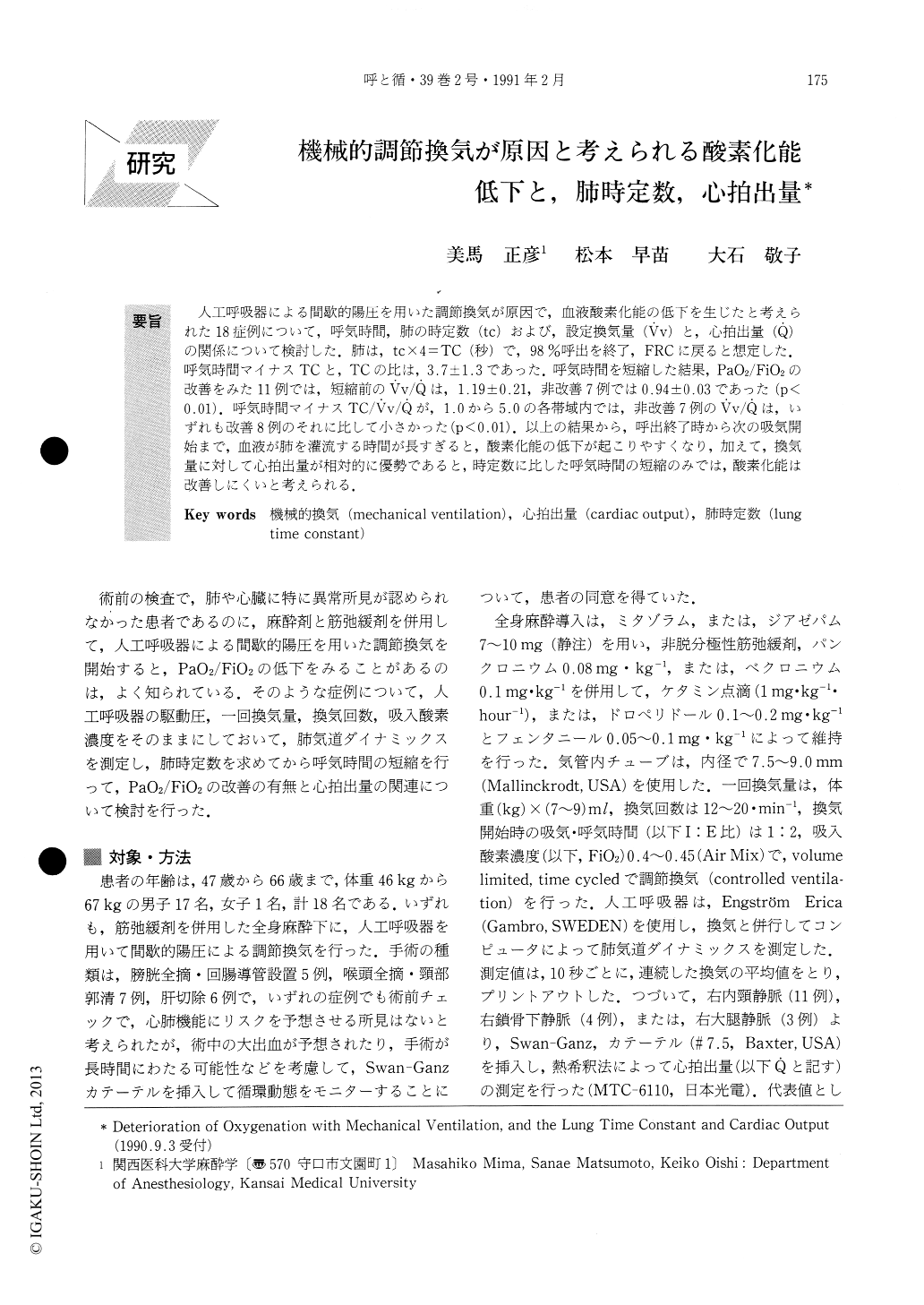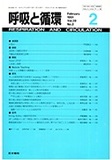Japanese
English
- 有料閲覧
- Abstract 文献概要
- 1ページ目 Look Inside
人工呼吸器による間歇的陽圧を用いた調節換気が原因で,血液酸素化能の低下を生じたと考えられた18症例について,呼気時間,肺の時定数(tc)および,設定換気量(Vv)と,心拍出量(Q)の関係について検討した.肺は,tc×4=TC(秒)で,98%呼出を終了,FRCに戻ると想定した.呼気時間マイナスTCと,TCの比は,3.7±1.3であった.呼気時間を短縮した結果,PaO2/FiO2の改善をみた11例では,短縮前のVv/Qは,1.19±0.21,非改善7例では0.94±0.03であった(p<0.01).呼気時間マイナスTC/Vv/Qが,1.0から5.0の各帯域内では,非改善7例のVv/Qは,いずれも改善8例のそれに比して小さかった(p<0.01).以上の結果から,呼出終了時から次の吸気開始まで,血液が肺を灌流する時間が長すぎると,酸素化能の低下が起こりやすくなり,加えて,換気量に対して心拍出量が相対的に優勢であると,時定数に比した呼気時間の短縮のみでは,酸素化能は改善しにくいと考えられる.
The influence of the lung time constant (tc) and preset volume on a ventilator-cardiac output ratio (Vv/Q) on the decrease in the oxygenation of blood (PaO2 /FiO2) due possibly to mechanical controlled ventila-tion, was examined with special reference to the time of passive expiration in 18 patients. The degree of deterio-ration of oxygenation appeared to depend mainly on the time following FRC, during which the blood continued to perfuse the lungs until the next active insufflation by the ventilator.

Copyright © 1991, Igaku-Shoin Ltd. All rights reserved.


